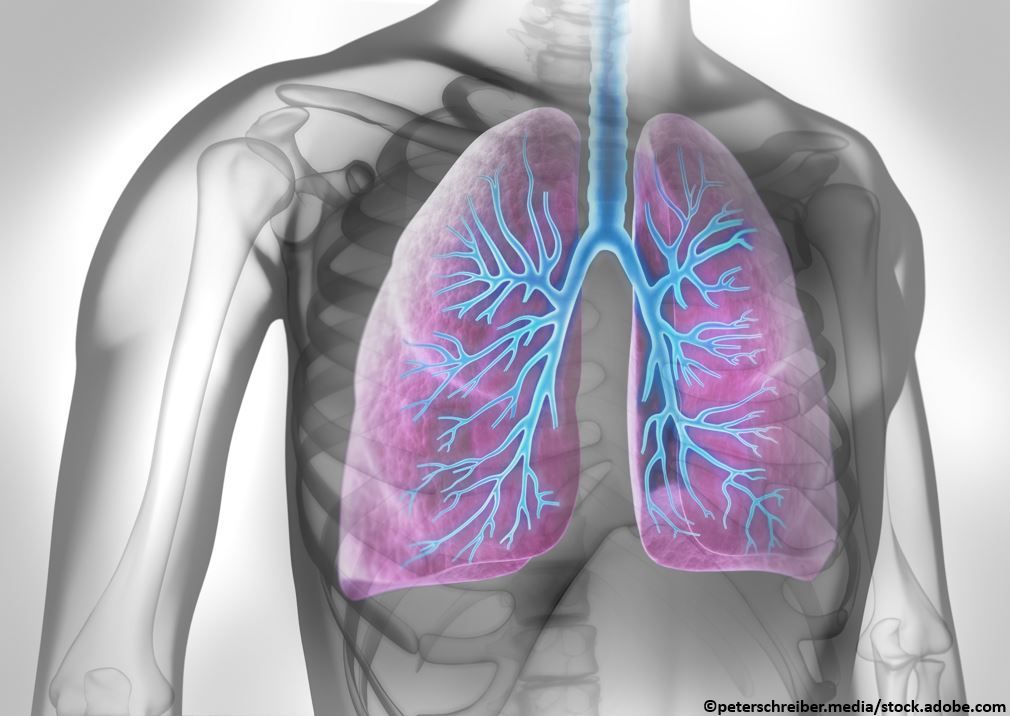- Clinical Technology
- Adult Immunization
- Hepatology
- Pediatric Immunization
- Screening
- Psychiatry
- Allergy
- Women's Health
- Cardiology
- Pediatrics
- Dermatology
- Endocrinology
- Pain Management
- Gastroenterology
- Infectious Disease
- Obesity Medicine
- Rheumatology
- Nephrology
- Neurology
- Pulmonology
Significant Reductions in Exacerbations Seen in Broad Population of Severe Asthma Patients
Statistically significant reductions in annual exacerbation rates were seen across baseline eosinophil and exhaled FeNO level and allergy status with telepezumab, in the phase 3 NAVIGATOR trial.

The novel thymic stromal lymphopoietin (TSLP) inhibitor tezepelumab demonstrated a 56% reduction in annual asthma exacerbation rate (AAER) over 52 weeks in a broad population of patients with severe asthma, according to full results of the phase 3 NAVIGATOR trial presented at the 2020 virtual American Academy of Allergy, Asthma & Immunology (AAAAI) meeting February 28 to March 1, 2021.
NAVIGATOR was a phase 3, multicenter, randomized, double-blind, placebo-controlled study to evaluate the safety and efficacy of tezepelumab for patients with severe, uncontrolled asthma when added to standard of care (SOC). SoC was defined as medium- or high-dose inhaled corticosteroids (ICS) plus at least one additional controller medication, with or without oral corticosteroids (OCS). Patients were randomized to receive tezepelumab or placebo subcutaneously every four weeks over the course of 52 weeks.
A total of 1,059 patients were randomized to receive tezepelumab (n=528) or placebo (n=531). The primary outcome measure was annualized asthma exacerbation rate (AAER).
The study found that tezepelumab reduced the annual asthma exacerbation rate vs. placebo by 56% (95% CI, 47-63) in the entire trial population.
In a preplanned subgroup, analysis, tezepelumab achieved a 41% reduction in AAER in patients with baseline eosinophil counts of <300 cells/µL and a reduction of 70% in patients with baseline blood eosinophil counts of ≥300 cells/µL.
In patients with baseline blood eosinophil counts of <150 cells/µL, the reduction in AAER was 39%.
Scores on the Asthma Control Questionnaire-6, Asthma Control Questionnaire-12 and FEV1 values also were reduced vs placebo over the 52 weeks (P<0.001 for all).
The investigators also report that clinically meaningful reductions in AAER were observed in tezepelumab-treated patients regardless of allergy status and fractional exhaled nitric oxide (FeNO) level.
“These are ground-breaking results for the many patients with severe asthma who continue to face debilitating symptoms despite receiving standard of care inhaled medicines and currently approved biologics,” said Professor Andrew Menzies-Gow, Director of the Lung Division, Royal Brompton Hospital, London, UK, and principal investigator of the NAVIGATOR Phase III trial in an AstraZeneca statement. “Tezepelumab has the potential to transform treatment for a broad population of patients with severe asthma regardless of their type of inflammation, including those with and without an eosinophilic phenotype.”
In the same statement, AstraZeneca notes that tezepelumab is the only biologic for asthma to demonstrate in randomized controlled clinical trials a significant reduction in AAER across eosinophil count, allergy status, and FeNO level. “There is now a strong body of evidence showing the benefit of targeting the top of the inflammatory cascade with tezepelumab, and we look forward to bringing this potential first-in-class medicine to a broad population of severe asthma patients as soon as possible,” said Mene Pangalos, executive vice president, BioPharmaceuticals R&D, AstraZeneca.
In September 2018, tezepelumab was granted breakthrough therapy designation from the US Food and Drug Administration in patients with severe asthma without an eosinophilic phenotype.
The NAVIGATOR trial will form the basis of regulatory submission, AZ added in its statement.
For more AAAAI coverage for primary care, visit our AAAAI Conference Page.
Kymera's Oral STAT6 Degrader KT-621 Shows Biologic-Like Activity in Early Atopic Dermatitis Trial
December 8th 2025KT-621 achieved deep STAT6 degradation and strong 4-week EASI and itch reductions, offering a potential new oral option for moderate–severe AD and other Th2 inflammation-driven disease.
